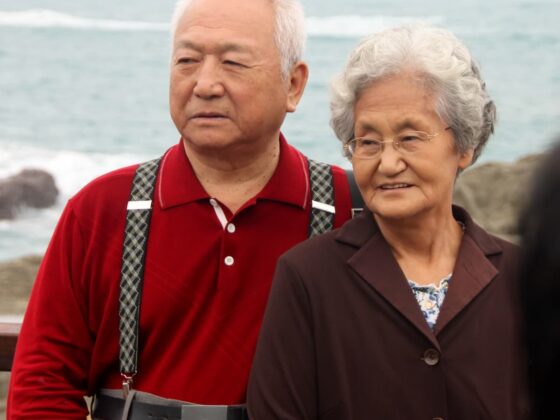The delicate mental health of many Hongkongers is being deteriorated by an unhealthy office culture that supports long working hours.
Statistics show that Hong Kong has the longest working hours in the world – an average of 51.1 hours per week, with 4 – 6 hours of overtime. Work-life imbalance is the norm and the phenomenon is reportedly getting worse, with cases of depression on the rise. Lack of sleep and increases in sleeping disorders, coupled with loss of appetite and lack of physical activity further aggravates the issue.
It goes without saying that deteriorating health directly impacts productivity levels for many employers. More than 300 million people globally are thought to suffer from depression, and some 260 million from anxiety disorders, according to the World Health Organization. A negative work environment is one of the key reasons, experts say, impacting the well-being of workers. Depression and anxiety disorders are estimated to cost the global economy US$1 trillion a year.
Compensation or negligence?
Employees suffering from mental illness caused by occupational stress face many hurdles in recovering compensation from their employers under the no-fault scheme in the Employees’ Compensation Ordinance (Cap. 282) (“ECO”). The ECO only protects “injury by accident” occurring out of employment, excluding a “continuous process” that produces an injury (e.g. continued noise over the course of time causing deafness). Moreover, mental illness is not considered an occupational disease in the ECO because it is not triggered by an accident in the workplace. Hence compensation cannot be obtained unless the employee can, in rare occasions, prove that he/ she suffered from a mental condition triggered by an accident at work.
At common law, an employer has the duty to provide the employee with a “safe system of work”. The breach of such duty could enable an employee to bring a claim in negligence. The English Courts (which remain persuasive in Hong Kong) have expanded the interpretation of such duty to include a duty to avoid psychiatric damage to the employee by the quantity or character of the job for which the employee was hired. In Barber v Somerset County Council [2002] 2 All ER 1 (“Barber”), Lady Hale LJ of the Court of Appeal elaborated on the requisite elements to establish liability in a negligence claim based on mental illness induced by occupational stress.
The foreseeability of mental illness stated as the “crucial test” by the Court of Appeal, depends on the knowledge that the employer has about an affected employee and when signs of mental instability begin to arise. Thus, in order to preserve a potential claim on mental illness induced by occupational stress, an employee must communicate such stress to the employer and look for help.
As opined by Lord Walker in the House of Lords in Barber, employers must recognise that it is not in their interest when a capable employee is lost because of mental health related issues.
Stigma
It is often not easy for employees to ask for help or make their employer aware of his/ her personal and health issues. Employees worry that the employer would consider issues to be a weakness, indicating low performance or, even worse, an inability to cope with a higher level of responsibility. Employees are also concerned that talking openly about such matters would create further obstacles in career development, bonus payment, promotion opportunities and other elements of career advancement. Others are simply reluctant to share what they believe to be very personal and confidential information that should be kept to themselves.
Improvements?
Employers should, therefore, seek to minimize workplace stress (and the risks of negligence claims related to mental illness induced by occupational stress), though good management and fair and consistent HR policies. They should also be alert to stress indicators, including working excessive hours, decreased performance, unexplained absences, mood swings and increased alcohol consumption.
Education on this topic and prevention are issues that the Hong Kong Government should strongly champion for the overall good of society. The Occupational Safety and Health Branch of the Labour Department has issued specific recommendations for employers and employees should follow. These include a more proactive and open discussion on how to improve the workplace environment and facilities, setting clear targets to improve work efficiency and minimise tensions, how to create a better rapport with other colleagues or the HR partner, how to be more aware of what constitutes a better work-life balance, how to engage in healthier activities and lifestyle and how to cope with stress in specific instances.
The conversation around mental health is gaining momentum in Hong Kong. The first Hong Kong Mental Health Conference was held on 2017 and saw the gathering of 400 attendees and over 100 speakers to launch Mind HK, which provides online information and training.
Hong Kong Government also launched an in-depth study of the mental health situation, emphasizing how mental health is a “major public health concern in Hong Kong”. The report defined several government programs to improve resources for those in need, such as Joyful@HK, a three-year educational campaign engaging with schools and workplaces to increase public mental health awareness.
The Hong Kong Jockey Club Centre for Suicide Research and Prevention has worked with social media companies to create a better reach with younger generations about suicide in Hong Kong.
Our team at Hugill & Ip has extensive experience in dealing with Hong Kong employment law – so kindly get in touch with us to find out how we can help.
This article is for information purposes only. Its contents do not constitute legal advice and readers should not regard this article as a substitute for detailed advice in individual instances.




